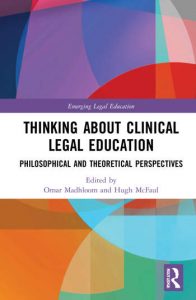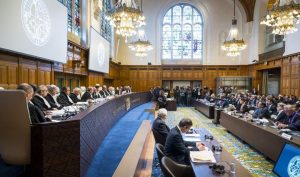by Omar Madhloom and Hugh McFaul
In a recent article, one of the authors of this blog posed the question whether Clinical Legal Education (CLE) requires theory. In an effort to address this question, we invited academics and law clinic directors from various jurisdictions such as Brazil, Canada, England, Ethiopia, Israel, and the United States to consider the theories that underpin their CLE programmes. This resulted in an edited collection entitled Thinking About Clinical Legal Education: Philosophical and Theoretical Perspectives. The intention of this volume is not to obscure or eclipse the practical and experiential by focusing on theory, but to invite the reader to consider whether the practice of CLE can be enhanced by paying more explicit attention to its theoretical underpinnings. (more…)


